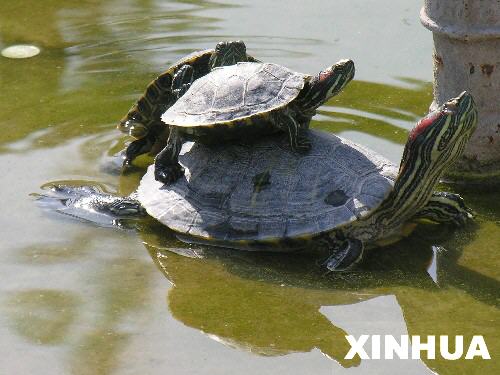The red-eared slider is a turtle that was first introduced as a pet and is still quite popular in China's pet market. It has been listed among the world's 100 worst invasive alien species, as identified by IUCN. The species proved to be a medium to spread disease and has caused great destruction in turtle populations in Taiwan.
 |
|
File photo: Red-eared slider
|
Another similar case is the smooth cord grass, introduced from America to improve the environment in 1979. It was grown in Fujian Province in 1980, and later introduced into Jiangsu, Guangdong, Zhejiang and Shandong in 1982.
"The initial introduction aims to protect beaches, improve the soil, make beaches green and hence improve the ecological environment; however…this species not only influences the local fishery production, but also poses a great threat to mangroves," Zhang says.
In addition to the intentional introduction of species, according to Zhang, some alien species can also be unintentionally introduced through imported goods.
In July 1999, Chinese Customs identified the pine wood nematode 59 times on the wood packaging of mechanical and electrical products imported from Japan and America. This species can cause a disease known as "pine wood cancer."
"The public should prevent the unintentional introduction of these alien species," Wang Jie indicates. "Take the notorious German cockroach as an example. People's packages, luggage or even goods on consignment can bring it on the journey. Even foreign fruit can pose great ecological risks."
(China.org.cn by Wang Wei, June 3, 2009)